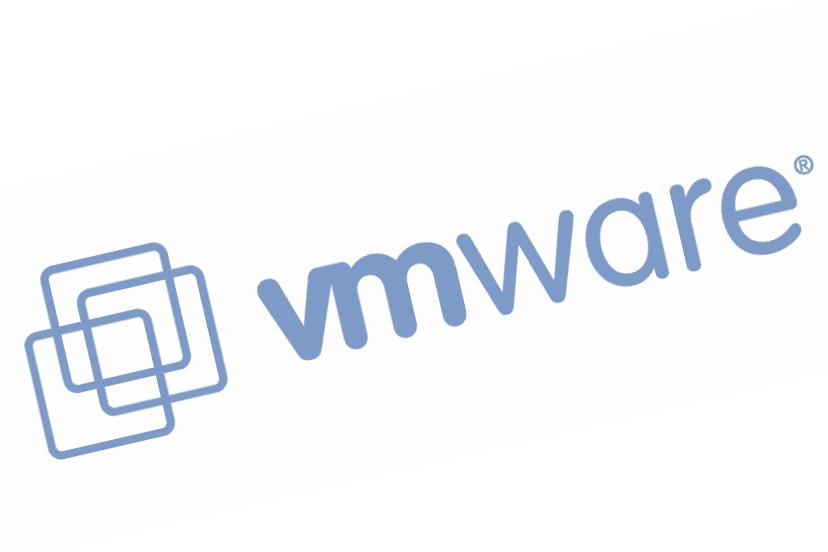VMware revenue up as virtualisation grows
VMware has announced a 35 per cent rise in revenue amid other positive signs in the virtualisation market.


Sign up today and you will receive a free copy of our Future Focus 2025 report - the leading guidance on AI, cybersecurity and other IT challenges as per 700+ senior executives
You are now subscribed
Your newsletter sign-up was successful
Virtualisation leader VMware has announced a 35 per cent increase in first quarter revenue over the same period in 2009.
The company's strong performance was proof that "virtualisation is becoming a cornerstone for customer's IT strategy", said Paul Maritz, president and chief executive officer at VMware, in a statement.
VMware expects total revenues in the second quarter to rise to between $635 and $665 million (413-433 million), compared to the first quarter figure of $634 million, explained Mark Peek, the company's chief financial officer.
He noted that part of the increased income will derive from the acquisition of Zimbra, which provides open source server software for email and collaboration, as well as assets from EMC, the majority owner of VMware.
A number of positive signs are emerging from the virtualisation market, indicating it is part of the wider IT recovery.
An IDC report has shown that 17.7 per cent of all new servers shipped in Europe, the Middle East and Africa (EMEA) in the fourth quarter of 2009 were virtualised, an increase of 16.31 per cent from the year before.
HP took the top spot for EMEA, taking 50 per cent of the market share of new virtualised server shipments, with Dell in second place.
Sign up today and you will receive a free copy of our Future Focus 2025 report - the leading guidance on AI, cybersecurity and other IT challenges as per 700+ senior executives
Despite these positive signs, Robert Epstein, head of small and medium-sized businesses (SMBs) at Microsoft UK, warned firms about some problems involved with the use of virtual machines.
"Virtualisation of servers has brought about new challenges for IT pros - security being one of them." Epstein told IT PRO.
"If deployed and started, the out-of-date virtual machine might be vulnerable to attack or could be capable of attacking other network resources," he added. "IT groups must take measures to ensure that offline virtual machines remain up-to-date and compliant."
Tom Brewster is currently an associate editor at Forbes and an award-winning journalist who covers cyber security, surveillance, and privacy. Starting his career at ITPro as a staff writer and working up to a senior staff writer role, Tom has been covering the tech industry for more than ten years and is considered one of the leading journalists in his specialism.
He is a proud alum of the University of Sheffield where he secured an undergraduate degree in English Literature before undertaking a certification from General Assembly in web development.
-
 Researchers call on password managers to beef up defenses
Researchers call on password managers to beef up defensesNews Analysts at ETH Zurich called for cryptographic standard improvements after a host of password managers were found lacking
-
 Is there a future for XR devices in business?
Is there a future for XR devices in business?In-depth From training to operations, lighter hardware and AI promise real ROI for XR – but only if businesses learn from past failures
-
 Dell Technologies eyes fresh market opportunities with 2026 partner program
Dell Technologies eyes fresh market opportunities with 2026 partner programNews The tech giant has updated its channel program with new incentives and initiatives to drive partner growth
-
 CISPE claims European Commission gave Broadcom a ‘blank cheque to raise prices, lock-in, and squeeze customers’ with VMware deal
CISPE claims European Commission gave Broadcom a ‘blank cheque to raise prices, lock-in, and squeeze customers’ with VMware dealNews Cloud providers have issued a formal response to the General Court of the European Union after the Commission defended its approval of the deal
-
 Channel focus: All you need to know about VMware's partner program
Channel focus: All you need to know about VMware's partner programChannel Focus Parent company continues to choose a fresh direction in a bid to increase partner capabilities and value to customers
-
 Computacenter enters the fray against Broadcom in Tesco's VMware lawsuit
Computacenter enters the fray against Broadcom in Tesco's VMware lawsuitNews The IT reseller has added its own claim against Broadcom in VMware case brought by Tesco
-
 Tesco is taking Broadcom to court – here’s why
Tesco is taking Broadcom to court – here’s whyNews The retailer is demanding £100 million in compensation following VMware pricing and licensing changes
-
 Who is John Roese?
Who is John Roese?Dell's CTO and Chief AI Officer John Roese brings pragmatism to AI
-
 How simplicity benefits the IT partner ecosystem
How simplicity benefits the IT partner ecosystemSponsored Content Across private cloud and AI adoption, simple approaches can unlock more time and money for IT teams
-
 'Digital hide-and-seek': Workers are wasting hundreds of hours a year sourcing the information they need to carry out their role
'Digital hide-and-seek': Workers are wasting hundreds of hours a year sourcing the information they need to carry out their roleNews Knowledge workers globally are wasting a quarter of their working week tracking down information, new research from Atlassian has revealed.
